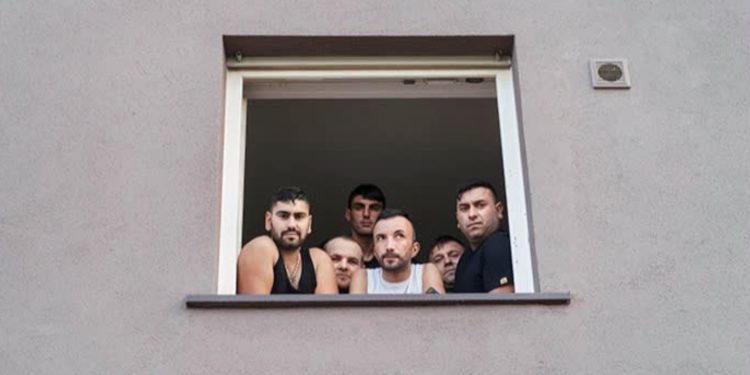A Financial Times investigation looks at Germany’s open secret regarding poor pay and conditions for migrant meat workers.
It says that while Germany is known for strong trade unions and harmonious labour relations, several pockets of its economy are dependent on cheap migrant labour.
It took labour minister Hubertus Heil months of wrangling to push a bill through parliament banning subcontracting systems in the meat industry. The law, which came into force at the start of January, has activists and trade unionists cheering.
But court battles loom, and monitoring any violations or loopholes is up to the same political class that ignored the problem for decades. The coming months will test whether the fight is really won.
“Sick tricks” by subcontracting companies to skim wages are common, according to a Besselmann foreman who requested anonymity.
One involves helping register workers for child benefits and tax cuts — free state services — in return for commissions which can be €20-€500, according to interviews with subcontractors and groups that counsel migrant workers.
Another, the foreman says, falsely inflates salaries by including commuter tax benefits for which migrant workers are not eligible. Inevitably, the state reclaims the taxes.
“The worker doesn’t know what to do — they’re already in Germany and now they discover their salary is far lower,” the foreman said. He did not say whether Besselmann did this. The links between subcontractors, recruiters and other middlemen are murky. Piotr Mazurek, a counsellor at Fair Mobility, a government-funded programme for migrant workers, believes this is intentional.
He spends his days parsing confusing payslips and helping workers reclaim wages, fight unfair housing rentals or spot illegal “fees” for knives or protective abattoir gear. “You have farmers and workers on one hand, and you have consumers on the other hand, and you have a big black box in between,” says Mazurek. “That black box is making millions every year.
Many activists point to MGM Handels-und Vermittlungs, owned by Romanian businessman Dumitru Miculescu. His company last year employed 1,700 workers, contracting with several of Germany’s biggest meat producers, including Tönnies.
More here…























